Ignacio Moron vs Kayhan Mokri
The best players are extremely good at identifying spots that print them money, which makes their opponents' lives hell on Earth. In this video, we'll cover what these spots are and the ways you can make money in them.
Ignacio Moron opens Ace-Jack from the hijack, and Kayhan Mokri calls on the button. On the flop, most hands could mix in a low frequency of small bets, but overall we just want to check most of our range.
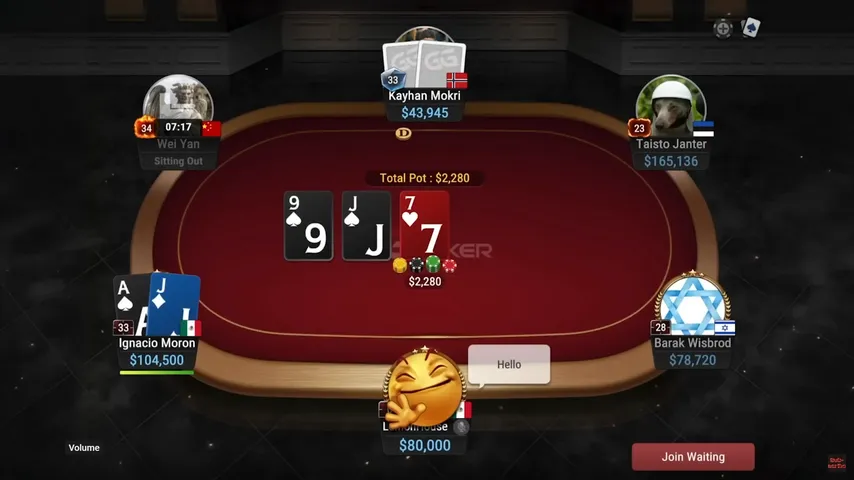
Our range from the hijack with Ace-Jack is tight and quite strong, but so is Kayhan’s when he calls on the button. He'll rarely have a hand that completely misses this flop, so being out of position for the rest of the hand, we'd rather check a lot and not bloat the pot.
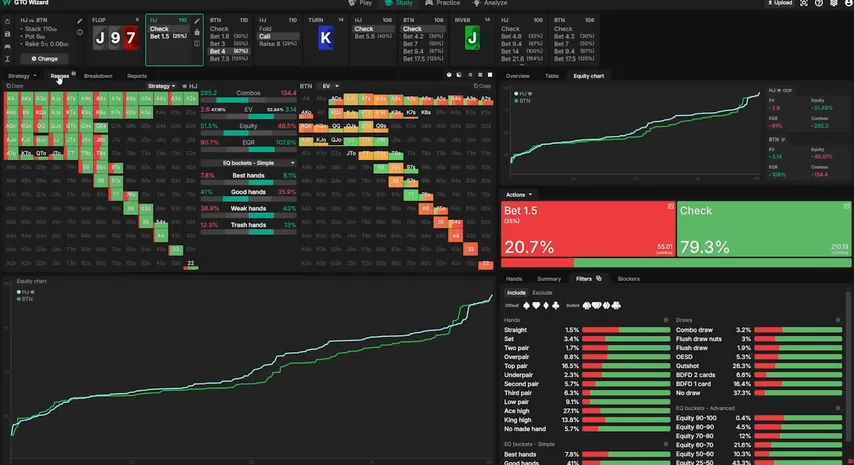
If you can't be bothered remembering all these frequencies for every one of these hands, you could just go for a range check and simplify your life because in this case you wouldn’t lose any EV compared to the original strategy. We can’t know whether Ignacio is simplifying or not, though, so we’ll work with the original strategy going forward.
Against the check, Kayhan would then bet around 37% of his range according to theory—most of them for around two-thirds pot.
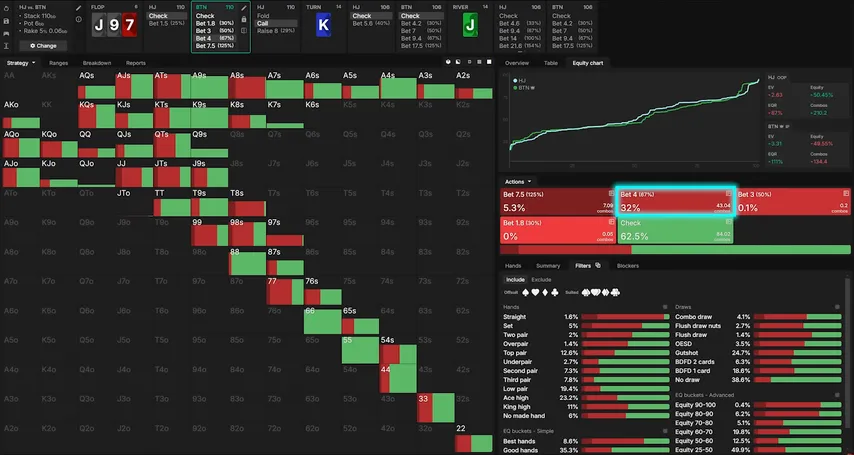
This bet would include all hand classes: straight draws, flush draws, Ace-highs, low pairs, middle pairs, top pairs, to two pair, sets, and straights. Except for straights, all of them would mix in a good amount of checks as well.
Against the bet, we see a similar approach for the hijack as before where almost all hands are mixing their action. is almost always just calling, but even our better hands like two pair and sets are raising very rarely; even a flopped straight just calls 50% of the time.
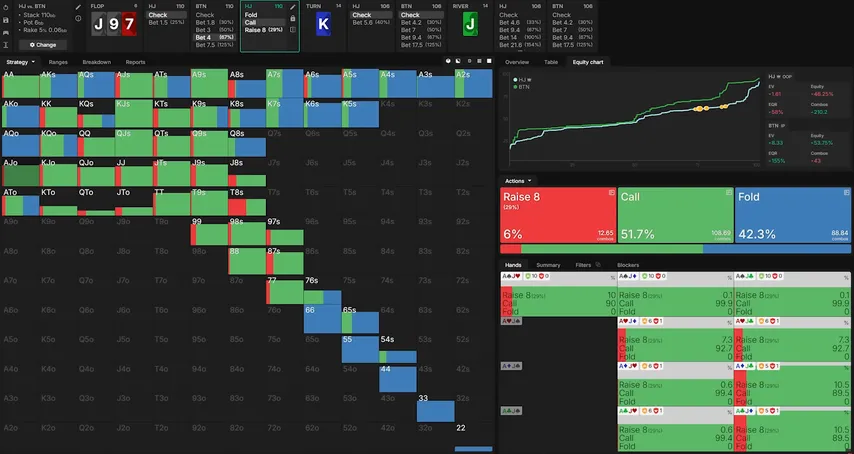
The turn is a King, and we see that the button's favorite betting size here would be an overbet, which helps his best hands get value and build the pot while increasing fold equity for his draws. But even though nut hands mostly bet, they still check sometimes.
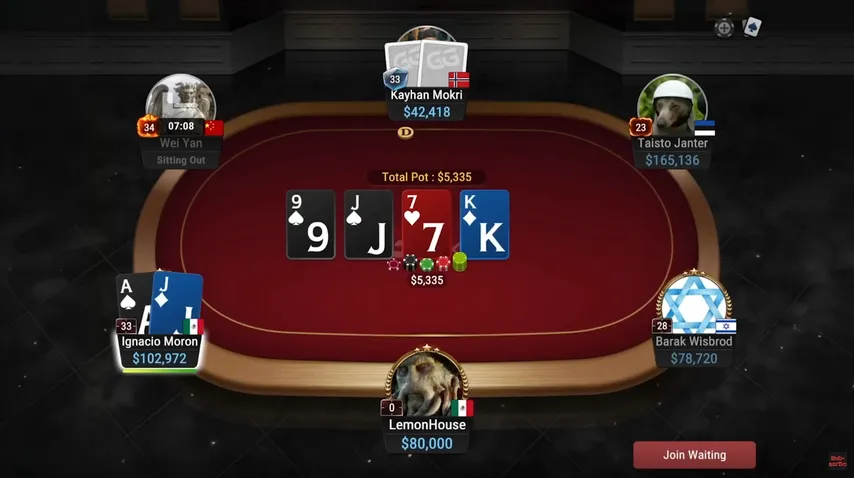
Straights would only check very infrequently, but sets check 25% of the time overall, with pocket sevens even checking behind 40% of the time. That might not be the intuitive play for everyone in-game; I think most people would by default go for value and charge the hijack's many drawing hands instead of allowing them to see a free card. However, considering the fact that against a very straight-heavy check-jamming range, pocket sevens would often have to fold when playing passively, protecting the checking range is a big part of the solver's strategy.
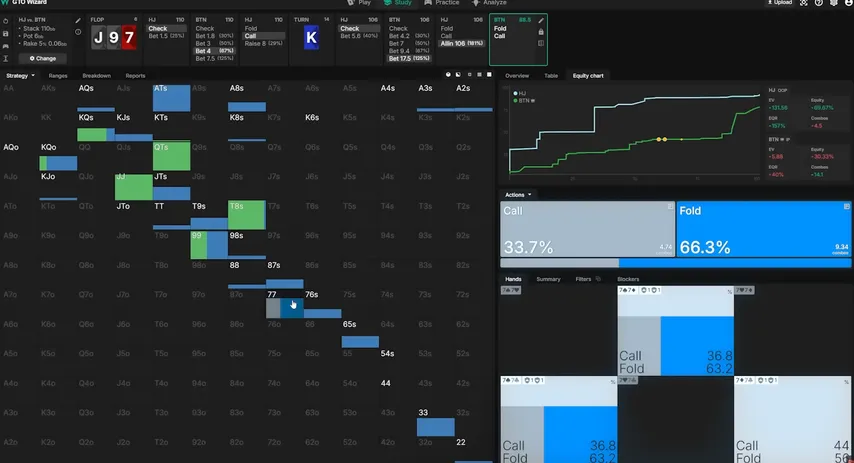
Pretty much the same applies to a lot of two-pair hands. Kayhan does check, and the river is a Jack. Here, the solver would have us bet mostly one-third pot, with 100% pot being the biggest size that bets frequently for both our range and our hand.
Overbetting doesn’t really happen for the solver. When the button checks behind a lot of , , , and on the turn, his range is uncapped on this river, which prevents Ignacio from betting very big in theory.
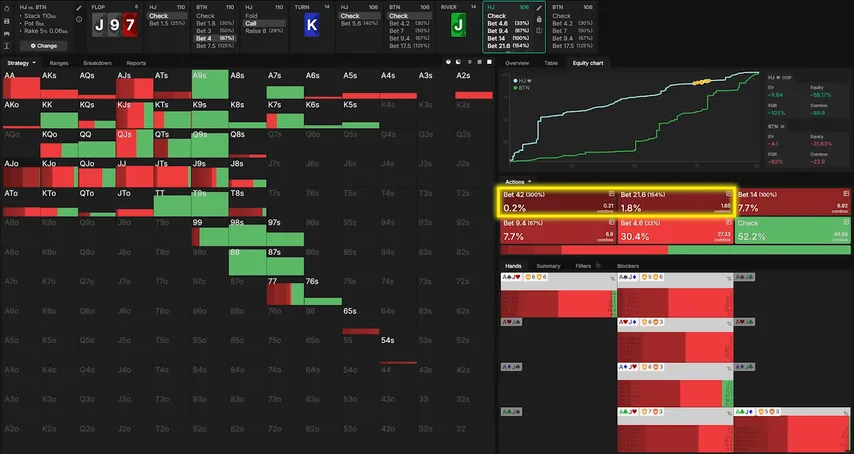
But what about in practice? Well, to check my assumptions, I made a poll to see how often you would bet a set on the turn. While some of you would mix betting and checking, most of you would in fact always bet—which would have a deciding impact on Ignacio's river play.
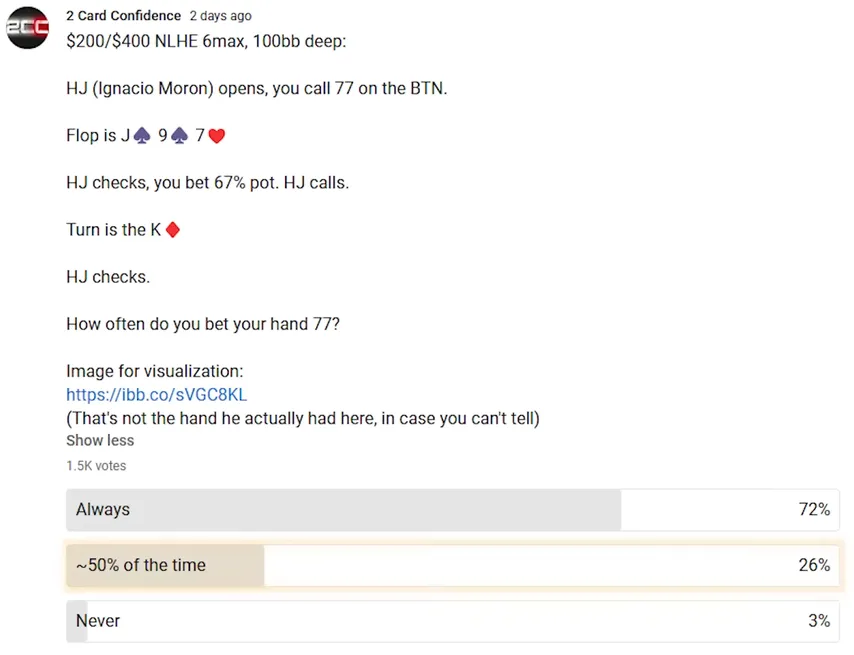
If we make Kayhan bet all his , , and on the turn so that he has none of them in his range after checking, then the solver starts to favor overbetting on the river just because Kayhan now doesn’t have enough nut hands in his range.
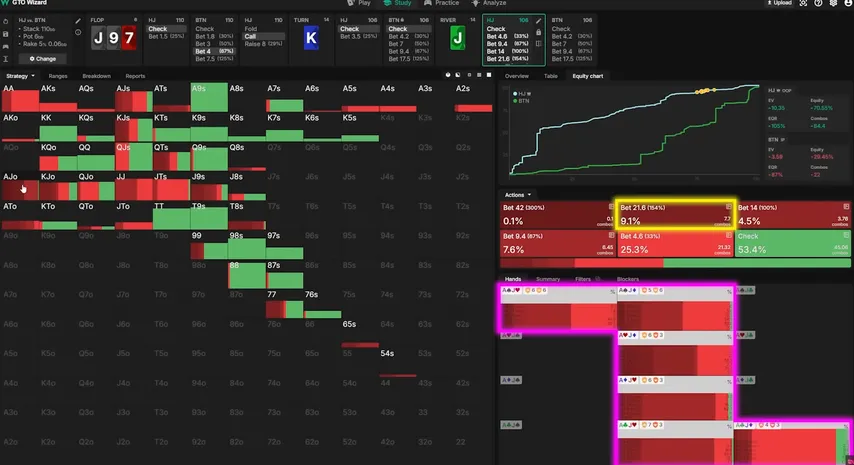
Of course, it might be that Kayhan is a lot more balanced here, but I think it’s also not unlikely that Ignacio got a lot more value by identifying a spot where a real-life opponent might be more capped than a solver.
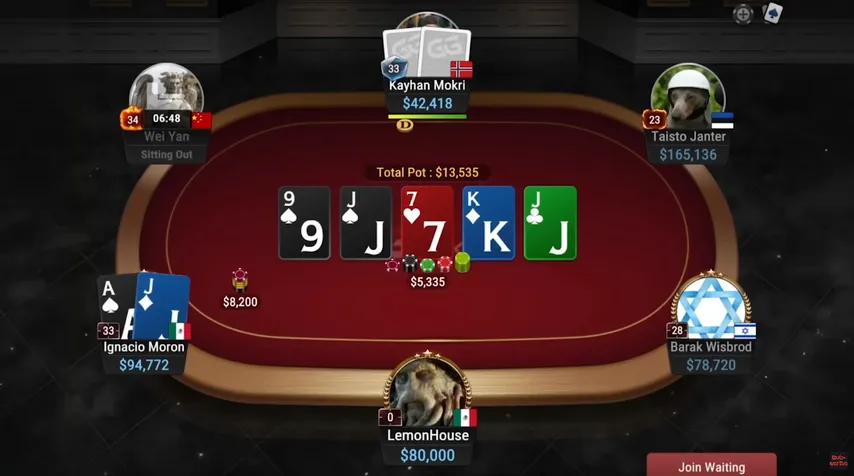
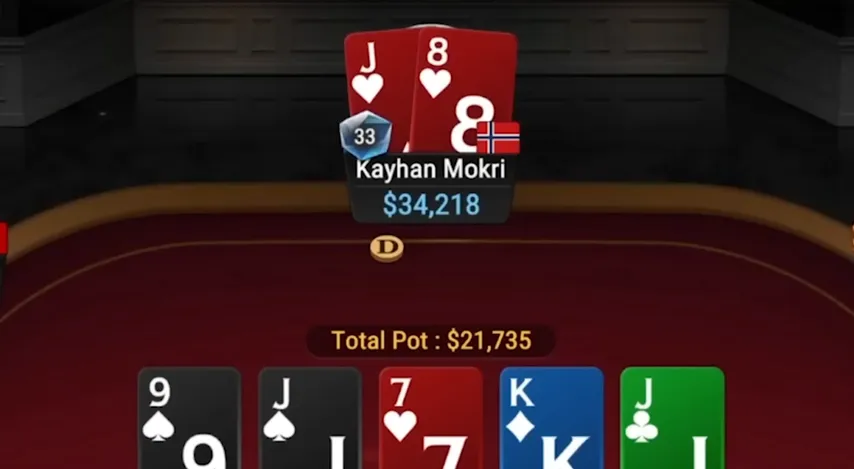
Barak Wisbrod vs Kayhan Mokri
This next hand shows how this effect can be maximized to the extreme: Kayhan opens from the button and Barak three-bets with Ace-King. Kayhan calls.

Barak flops top two pair but on a monotone flop prefers really small sizings—so betting only 12% pot is also what the solver mainly goes for.
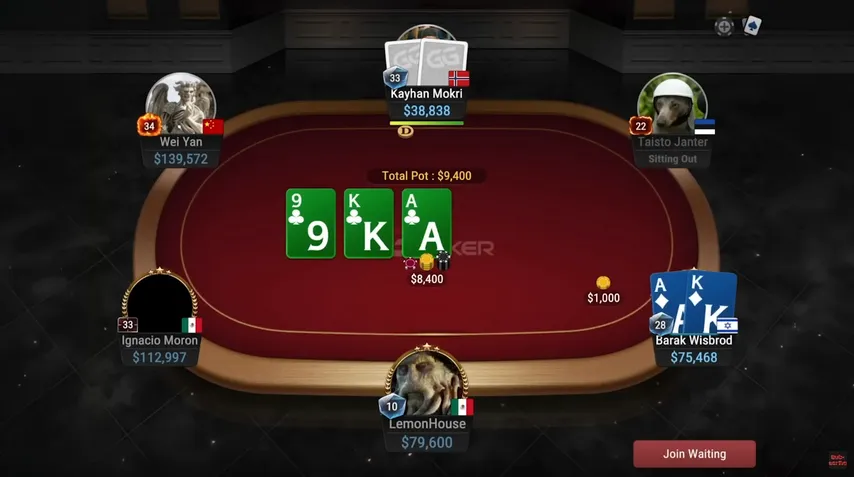
A small raise by the button is also a good choice and would happen a lot across all hand classes—some of which are easier to find in practice like or —but also some that are harder to find like without a or with or without a .
Just calling with is standard, and we see an , on which we check-range.
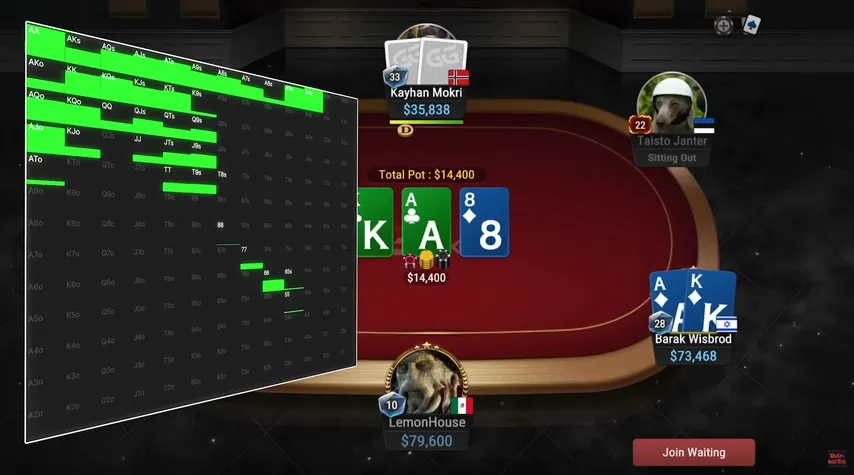
The button would continue barreling most hands here; among them are almost all flushes and most nut flush draws.
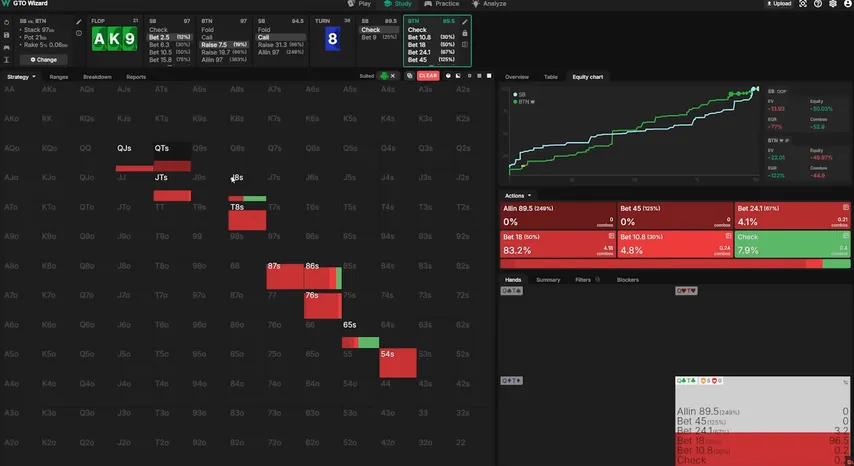
Check-backs would mostly happen with lower pairs with a club, top pairs without clubs, and total give-ups.
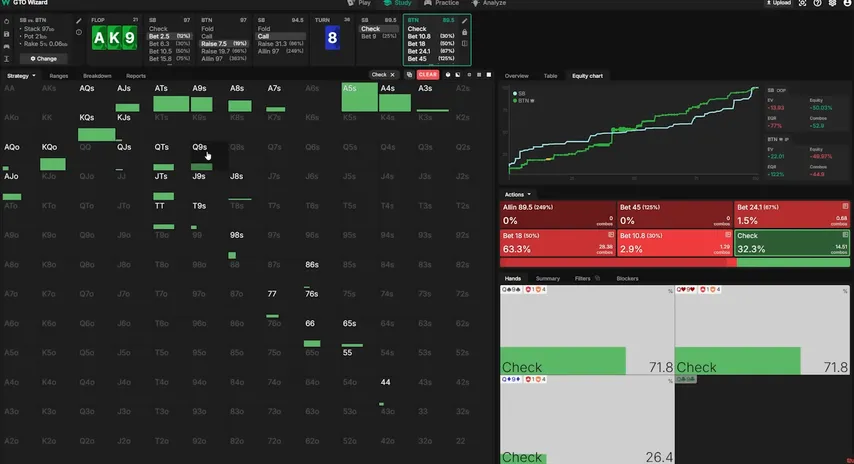
Because the button's range is so well-defined and includes relatively few flushes, Ace-King would actually be allowed to make a small value bet even on this four-club river. However, Barak goes for the check here, which puts Kayhan in a spot where the solver would mostly go for a polarizing overbet including flushes and bluffs.
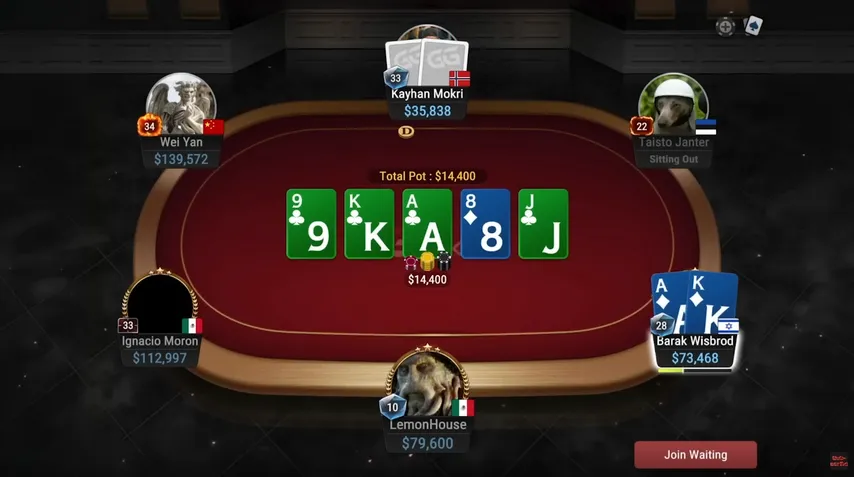
Since we saw that all nut flushes would have bet on the turn—just like all offsuit and many —and offsuit would have had to find a very unintuitive raise on the flop in the first place, it’s very unlikely for Kayhan to have many nut flushes on this river.
At the same time, Barak could easily have a bunch of them.
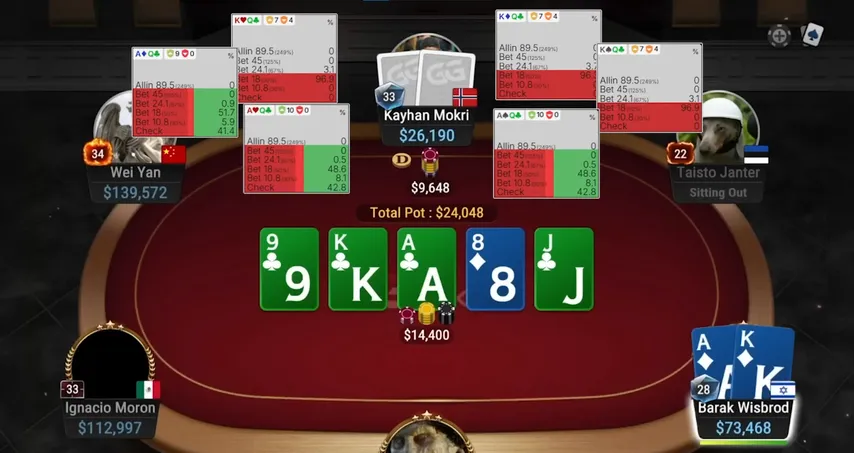
Even though they would mostly bet the river themselves according to the solver, hands like offsuit, offsuit, or suited are way more likely to arrive at the river in his line than in the button’s line. So he could easily sell the story that they would sometimes check here in practice and still be in his range—which means that this is another example of identifying a spot where your opponent is likely capped in practice while you are not.
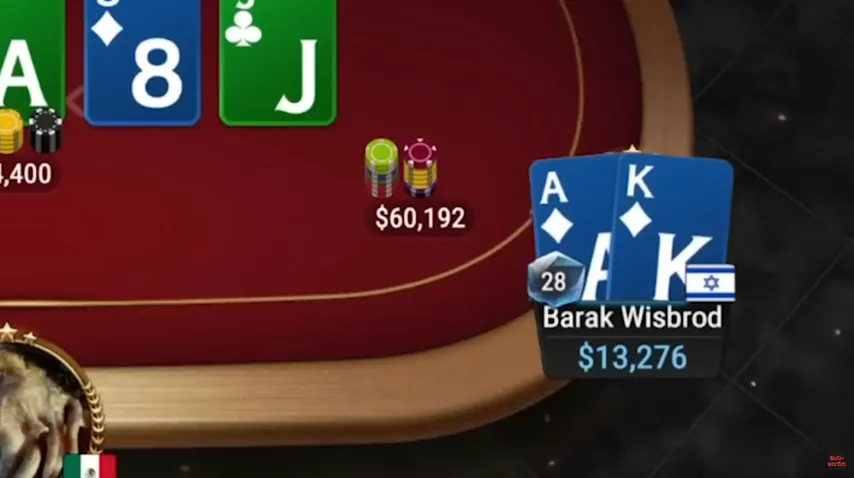
That makes it not only a great spot for value betting – but also an opportunity to go for some extreme bluffs.


















